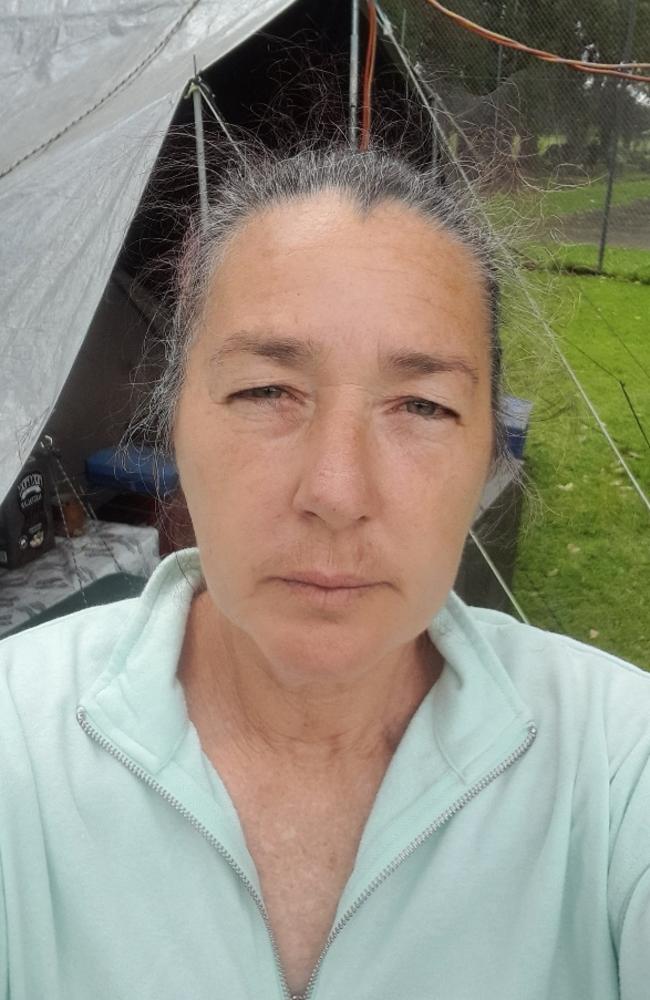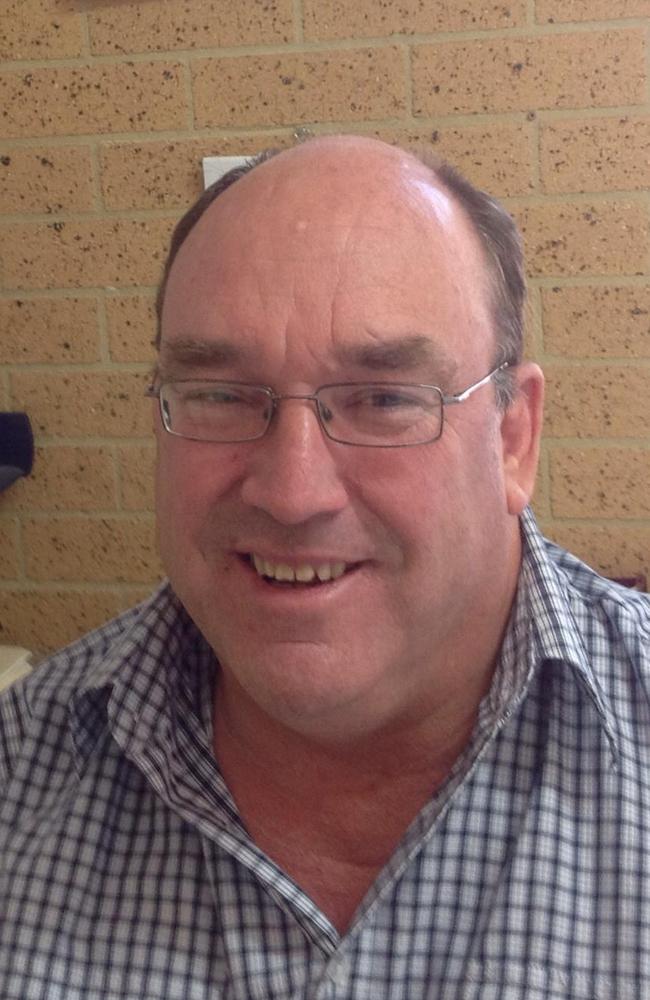Shoalhaven mum shares living in bus story amid Airbnb, cost of living crisis
A mum who dreamt of designing her own home has given up on ever owning a property after becoming homeless and living in a bus. Read the debate about Airbnb’s role in the housing crisis.
NSW
Don't miss out on the headlines from NSW. Followed categories will be added to My News.
A mum who left a stable rental property to move closer to her son’s university found herself homeless just months later, forced to live in a bus.
Lynette Wright had rented her Sanctuary Point home for eight years when her youngest son Dylan was accepted into the University of Wollongong.
After months taking him to and from the train station, the 54-year-old mum of two decided to relocate closer to public transport.
“I thought ‘this is ridiculous’,” she said.
“He needs to be closer to the station. If I have to pay more rent, well that’s okay.”
Ms Wright settled into a new home shortly after, but it did not last long.
“I just started having random people showing up at the property,” she said.
“Turned out, the owner had a development application that they hadn’t disclosed.
“I’d come out in the morning and there would be people digging up my driveway.”
Ms Wright was soon hit with a 90-day eviction notice.
With her son having left the coop to study, she had already found herself paying twice as much for rent.
But suddenly she faced increasingly high rents in the Shoalhaven region.
Real Estate Investor Australia says unit rental prices have increased about 15 per cent in the past year alone.

Unable to make ends meet, Ms Wright relocated to a campground near Terara, which she described as a “paddock”.
But living out of tent proved hazardous as she battled multiple extreme weathers events throughout 2022.
Not one, but two of her tents were blown away in fearsome storms that left areas flooded and towns cut off in March.
That's when, with some money from a recently passed away relative, she moved into her bus. But, even that had its challenges.
“I finally had a roof over my head,” she said.
“But things were still difficult. It’s hard to brush your teeth when you’re living in a paddock. Or, to shower.
“When you’re homeless, simple things are hard. Charging your phone is difficult. If you have to fill out paper work for a job application, you’ve got to go to the library.
“I broke my shoulder, too, so I was walking 2km to the shops and back for groceries.”
Ms Wright is not alone.
Receiving support from Nowra-based women’s charity SASHI, she saw many women in similar predicaments.
Some were fleeing domestic violence, but many, like her, simply could not afford rocketing rent prices on the state’s south coast.
For the region’s leaders, housing affordability has become an increasingly dire problem. One that has resulted in progressively novel solutions.
Only weeks before the Shoalhaven's only walk-in homeless shelter shut due to a lack of funding, citing the prevalence of AirBnBs and holiday homes as putting added pressure on would-be tenants, Shoalhaven City Council mayor Amanda Findley made an impassioned plea.
In a letter to non-resident ratepayers, she urged homeowners to consider turning their holiday homes and short-term lets into longer-term rental properties, so that people like Ms Wright and those forced out of the Safe Shelter Shoalhaven could find somewhere affordable to live.

Earlier this month, Bega Valley Shire Council mayor Russell Fitzpatrick penned a similar letter, but said the issue rested not just with Airbnbs.
“Right after the Black Summer bushfires, we knew we were going to have problems,” Mr Fitzpatrick said.
“Hundreds of homes were destroyed. We called on people with holiday places to rent them out.”
Mr Fitzpatrick said it was a lack of supply, from lagging investment in affordable housing to construction supply shortages and a development approval process marred with objections and “zombie” developments that had worsened the housing situation in the region.
“There was a housing shortage right through Covid,” he said.
“We have a good airline service to both Sydney and Melbourne, so people realised they can live here three weeks out of a month.
“So, we have more people living out of their holiday homes.”
Rentals in the region had also skyrocketed, Mr Fitzpatrick said, with properties previously costing about $300 a week now fetching closer to $600.
Work on affordable housing is also being drawn out, with council-led projects such as in Cobargo facing pushback.
An Airbnb spokeswoman said the company was proposing a series of new measures, including a statewide registration scheme and support of a tourism levy to fund housing and community projects and government reviews of eviction protections.
“Airbnb was born during the Global Financial Crisis to help families afford their homes and make ends meet, and we remain committed to empowering everyday people to combat costs of living,” Airbnb’s Australia and New Zealand country manager Susan Wheeldon said.
“Airbnb is keen to play a part in helping to provide meaningful solutions and tackle the issue of housing supply and affordability, in collaboration with a broad range of stakeholders.”
In the Shoalhaven, Business Milton Ulladulla president Matt Dell said Airbnbs had unduly become the focal point of frustration.
“I’ve been with the business chamber for quite a while,” he said.
“I can say 15 or 20 years ago, the statistics in the Shoalhaven were about the same: one in three houses were unoccupied.
“That’s a long time before Airbnb and these sorts of things were popular.
“Instead, they were holiday homes where people came down six weekends a year. Now that they‘re renting those out under Airbnb, it hasn’t changed the housing situation.
“The the underlying inference is that Airbnb has taken away houses from for people to rent permanently, but I don‘t think that’s the case.
“I think Airbnb is utilising the under-utilised houses that were there before – holiday houses that used to sit idle are now being used.”
Similarly, Mr Dell said the issue rested largely with a lack of new projects.
“Demand had gone up, supply hasn’t,” he said.

“Decades ago there were already conversations at council that the Milton-Ulladulla area was going to run out of land.
“The issue is you cannot rezone land. Right now, 75 per cent of the area is impacted by waterways, meaning you cannot turn vacant land or farm land into a housing development.
“There are not many unbuilt blocks of land left.”
Mr Dell said the local business community was already feeling the effects of the current housing crisis.
“Housing affordability is a big issue,” he said.
“So, too, is staff availability.
“All the visitor economy positions, from cleaners in motel rooms to baristas and service staff – all the businesses have signs out.”
While she has since moved into a short-term cabin and is looking for work, Ms Wright’s housing future still remains in doubt.
Her bus remains parked alongside the cabin, ready to be relocated should she need to move.
And, without government assistance, she soon might have to – again.
“At the end of my 12-month lease, if the government assistance I have ends, I could be back in the paddock,” she said.
“I don’t want that to happen, but realistically it might.”
Ms Wright now admits to have all but given up on her dream of one day studying architecture and building her own dream home.
“I’m probably the most ordinary person to end up in this extraordinary situation,” she said.
“I always wanted to build my own house.
“At this point, I have completely given up on even imagining ever owning a house.”
More Coverage
Originally published as Shoalhaven mum shares living in bus story amid Airbnb, cost of living crisis




